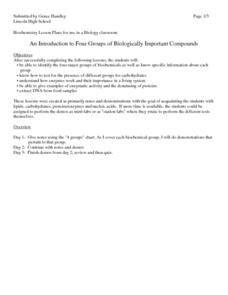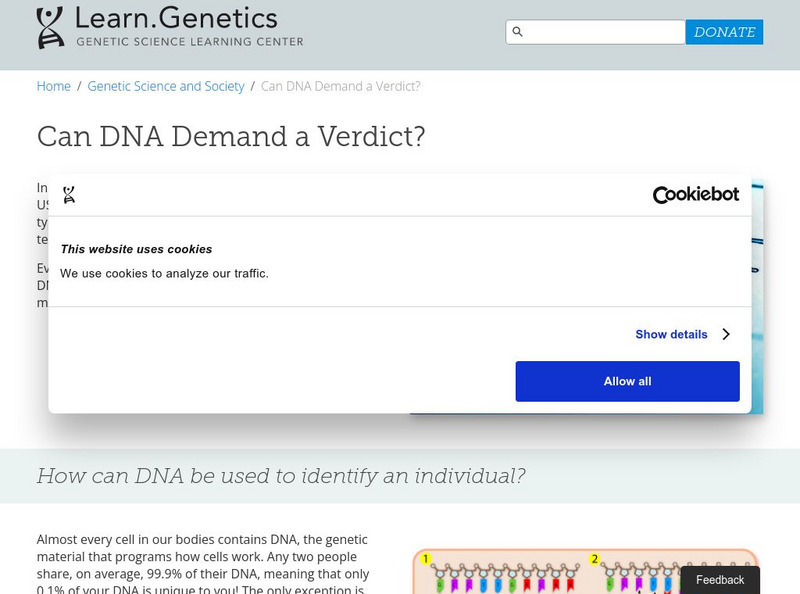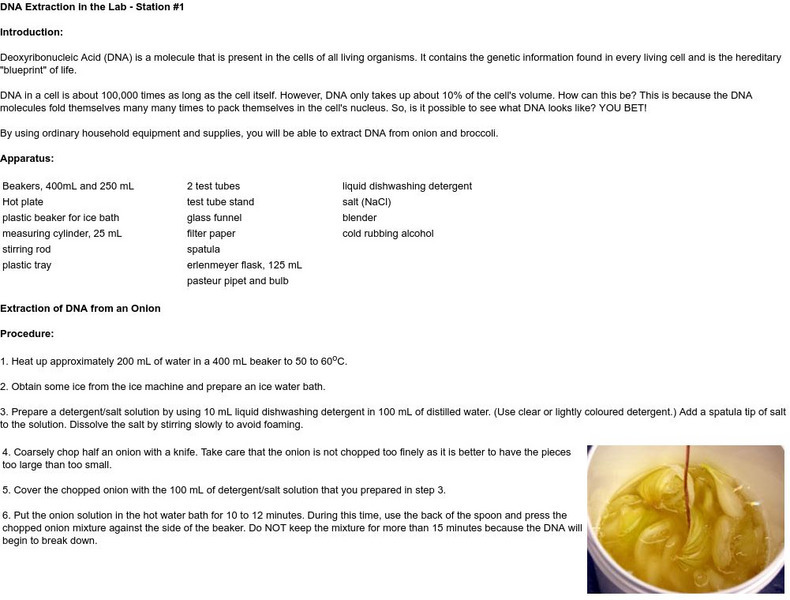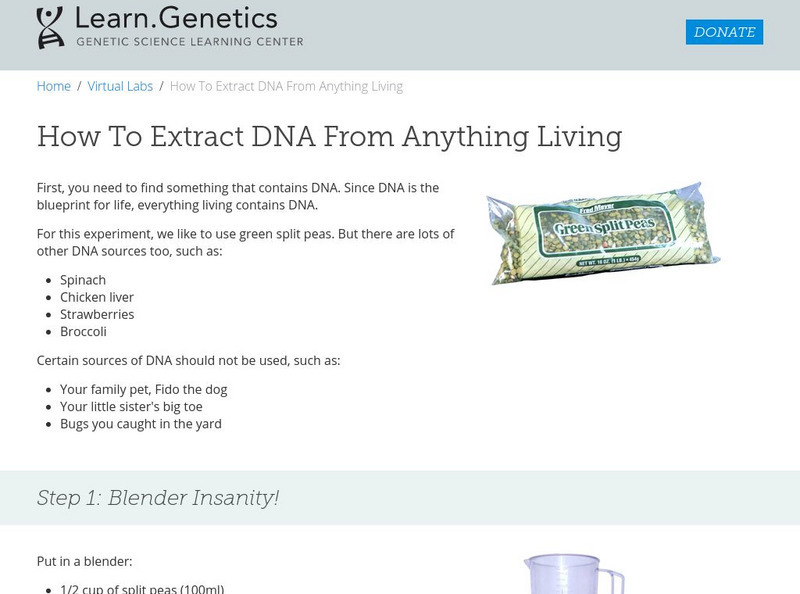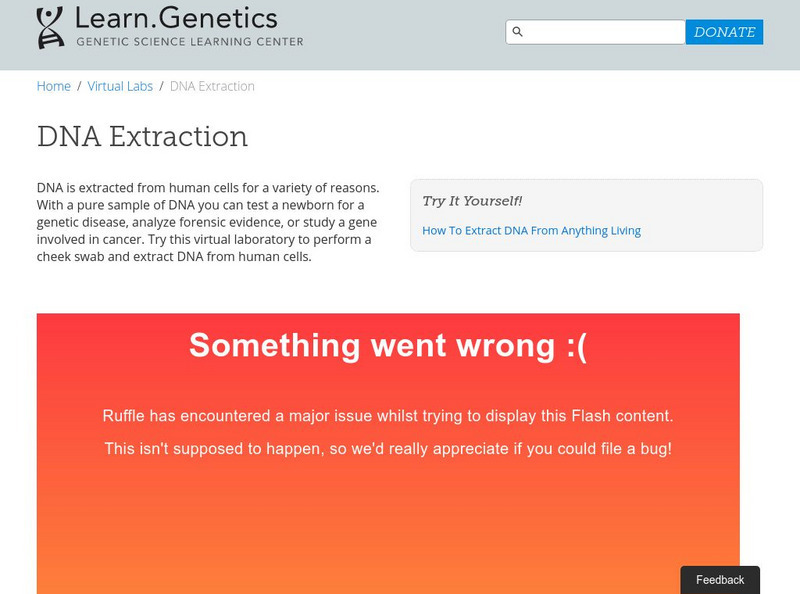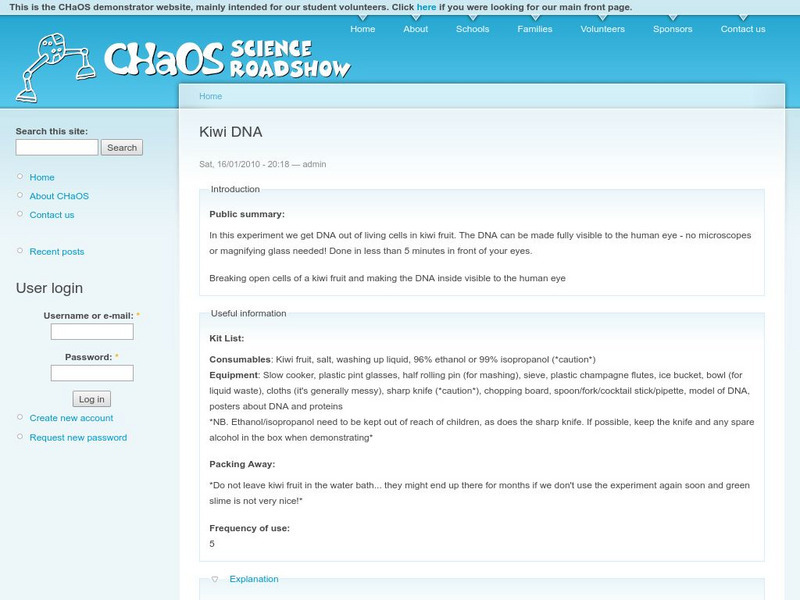Curated OER
DNA Fingerprinting
Young scholars experiment with chromatography as a technique which is similar to electrophoresis that scientists use to identify DNA samples.
Curated OER
Relationships and Biodiversity
Students examine diversity on the planet and the differences within a species. In this investigative lesson students complete a lab that allows students to better understand the relatedness between plants.
Curated OER
An Introduction to Four Groups of Biologically Important Compounds
Students learn about the four biochemicals that are important biologically. In this biochemicals lesson plan, students identify the four major groups of biochemicals including carbohydrates, proteins, lipids and nucleic acids. They are...
Curated OER
The Arizona Hedgehog Cactus: Endangered Species or not?: Biology, Plants
In this lesson students will study the: "Classification of Echinocereus triglochidiatus and Geographical Ranges of its Varieties." Students read background material and scientific literature to analyze the cactus populations and then...
Curated OER
Gene Therapy - Biotechnology
Pupils complete a unit of study on bioethics. They participate in a discussion about gene therapy and its uses. They review two case studies and discuss the ethical issues focused on in the cases. They develop a patient record based on...
Curated OER
Molecular Evolution in Plants
Students are using a paper chromatography study that is suitable for introductory biology. The absorption spectra studies and gel electrophoresis studies are appropriate for students who have complete both introductory biology and...
Curated OER
Molecular Evolution in Plants
Students examine chlorophylls. They explore the absorbing pigments in a variety of plants. Through activities, students determine spectrophotometrically. They compare plant proteins from the family Brassicace to assess the level of...
Science Education Resource Center at Carleton College
Serc: Introduction to Dna Extractions
This is a lab exercise giving instructions for the extraction of DNA from several different starting materials.
University of Utah
University of Utah: Genetic Science Learning Center: Dna and Verdicts
Part of a site on genetics, this page explores DNA as a forensic science. Explains how and why DNA can be used to convict or acquit a criminal from wrongdoing using forensic DNA analysis. Teacher resources too.
Smithsonian Institution
Lemelson Center: Spark!lab: Extract Dna
Dissect strawberries and use common household ingredients to successfully extract and examine the strawberry DNA.
Other
British Columbia Institute of Technology: Extraction of Dna
A lab experiment to extract DNA from an onion using household equipment. Procedure includes both videos and pictures.
University of Utah
University of Utah: learn.genetics: How to Extract Dna From Anything Living
An experiment to extract DNA from green split peas, spinach, chicken liver, strawberries, and broccoli using simple household reagents.
Huntington Library
Huntington Library:garden Lesson Plans: Fruit Salad Hold the Dna, Please [Pdf]
After learning about DNA and how it is used in crime scene analysis, learners take part in a lab activity where they extract DNA from ripened fruit.
University of Utah
University of Utah: Learn Genetics: How to Extract Dna From Anything Living
Four steps is all it takes to get DNA out of a variety of living things. The requirements include a blender, meat tenderizer, isopropyl alcohol, and a test tube. Sources of DNA include but are not limited to split peas, strawberries,...
Other
Cambridge Hands on Science: C Ha Os Science Roadshow: Kiwi Dna
Engaging, hands-on experiment where learners identify the DNA of a kiwi.
The Franklin Institute
Inquiry Almanack: Bio Point
Discover from a student's point of view what a "DNA fingerprint," is and how it is extracted.




